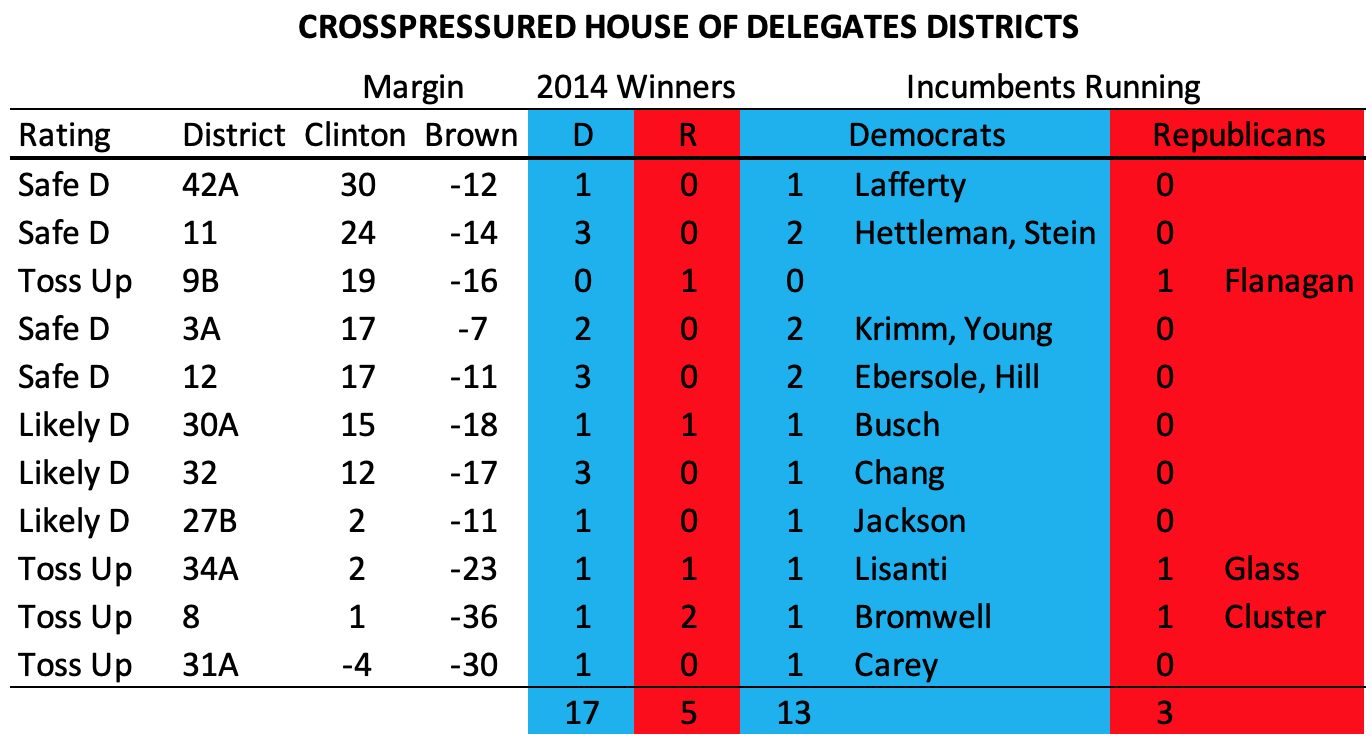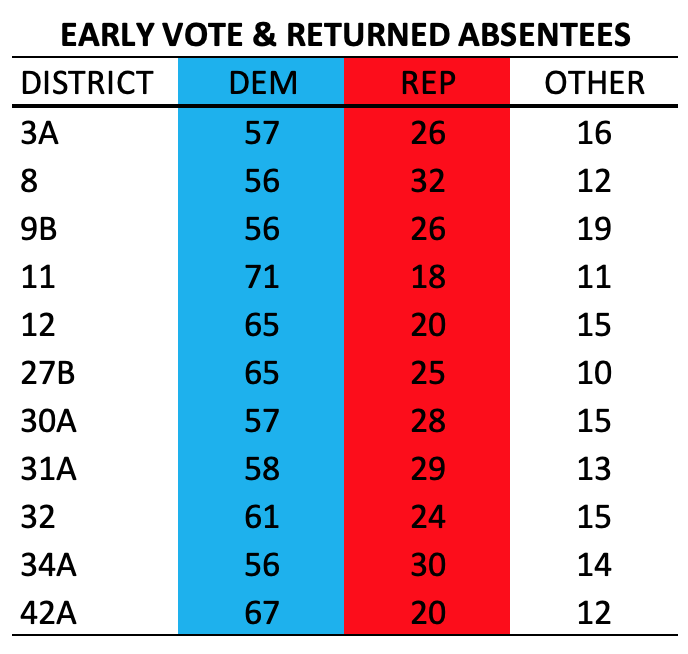By Adam Pagnucco.
Delegates Kumar Barve and Dana Stein, the Chair and Vice Chair of the House Environment and Transportation Committee respectively, have written the state’s Secretary of Housing and Community Development requesting an extension of the state’s eviction moratorium to January 31, more state funds for rental assistance and more transparency around the spending of those funds. The eviction moratorium is particularly pressing because Maryland’s courts could conceivably start hearing eviction cases as early as September. We reprint the letter from Delegates Barve and Stein below.
*****
The Honorable Kenneth C. Holt
Secretary, Department of Housing and Community Development
7800 Harkins Rd.
Lanham, Maryland 20706
Dear Secretary Holt:
In our respective capacities as the Chairman and Vice Chairman of the House Environment and Transportation Committee, we would like to thank DHCD for its participation in the committee briefing held on June 29, 2020 entitled “The Effects of Covid–19 on Housing.” It was an enlightening experience and a solid first step in addressing this important issue which has affected many thousands of Marylanders.
The phrase “tsunami of evictions” was used throughout the briefing, and it serves as a poignant prospect of what may occur without immediate action by the State. Our local governments have acted swiftly to stem the tide, but they can only do so much. In the interest of partnership and given the committee’s background on these issues, we offer the following recommendations for further action by your department:
1) Work with Governor Hogan to extend the State’s Eviction Moratorium through January 31, 2021
Currently, the 120 day eviction moratorium for covered properties under the Coronavirus Aid, Relief and Economic Security (CARES) Act officially ends as of July 25, 2020. We understand that certain federal agencies have acted in a discretionary capacity to extend this moratorium until the end of August of this year. As for the State, Governor Hogan’s March 16, 2020 Executive Order prohibits Maryland courts from ordering the eviction of any tenant who can demonstrate, through objectively verifiable means, that the tenant suffered a substantial loss of income resulting from Covid–19 or the related proclamation of a state of emergency and catastrophic health emergency. This prohibition extends until the State of Emergency is lifted. The Judiciary of Maryland has also acted to phase reopening of Maryland’s courts. The effect of this means that district courts will not begin to hear “failure to pay rent” cases until August 31, 2020.
While we applaud the early action taken by the Hogan administration, the uncertainty surrounding the proliferation of this virus and the need to keep individuals housed for their health and safety suggest a longer limitation on evictions is needed. An extension until January 31, 2021 will allow time for (1) appropriate planning to prevent a flood of new eviction proceedings as a result of Covid–19; (2) recovery of the State job market, thus allowing Maryland citizens to return to work and continue to pay their rents and address any overdue rent; and (3) the General Assembly and the Hogan administration to meet and consider emergency legislation meant to address the Covid–19 crisis.
2) Work with Governor Hogan to identify additional funds for rental assistance programs beyond the $30 million in CARES Act funds identified, and establish a plan for oversight of these funds
Again, while we recognize the actions taken by the Hogan administration to dedicate $30 million in CARES Act funds for rental assistance and funding for certain housing providers, this amount seemingly pales in comparison to the need stated by both tenant advocates and representatives of property owners and managers. At the briefing, we heard testimony that a single large housing provider in the State has lost rent payments equal to approximately 8.7% ($2.6 million) of this amount since March. Another large housing provider has an uncollected rent balance for May 2020 of approximately $1.8 million, or 5.7 times its uncollected balance for the same month in 2019.
Our counties have taken the initiative to directly address the housing crisis, but many programs lack sufficient funds to address the need and will be ineffective without significant State assistance. As an example, in Phase 1 of Baltimore County’s Covid–19 Eviction Prevention Program, it was estimated that $1 million would help approximately 300 households; however, the program received 1,500 applications totaling over $6 million in requests for assistance. Baltimore City, in its individual capacity, has committed $13 million in CARES Act Community Development Block Grant funds to its Temporary Rental Assistance program. Finally, we heard testimony that the level of support required by nonprofit housing providers in Montgomery County between now and December is estimated at $40 million; this figure does not account for funds to support commercial landlords who are losing rent owed to them.
We anticipate things will only get worse. As mentioned by several participants, including DHCD, the increased unemployment payments under the CARES Act and federal stimulus payments may have helped limit the number of individuals facing rental hardships during the early stages of this crisis. However, as these fall away in the coming weeks, renters impacted by Covid–19 will find themselves with even less available support and at greater risk of eviction due to nonpayment of rent.
While we are adamant that more State support is needed, we do not ask the Hogan administration to take steps that it would deem detrimental to the State budget; rather we ask that the Administration identify all available sources of funds which may be used to support local rental assistance programs and commit additional funds to support renters and the rental housing industry, especially funds received pursuant to the CARES Act. We advocate for objective, fact–based decision making in light of the economic realities foisted upon us by this crisis.
The lack of firm details, transparency and accountability measures around the $30 million in announced rental relief spending is alarming. While awarding the funds directly to large rental managers may be the most efficient method, we have significant concerns that some of those funds will not end up providing renters with relief. We cannot afford to waste a single dollar of taxpayer funding in this crisis. Please provide our committee with the plan by which it intends to administer these funds, including any application requirements, plans and conditions for their distribution and limitations which will be placed on their use. We expect this information to be made public before you begin to distribute funds. Finally, we ask that your department and the Hogan administration continue to provide updates as this response develops.
Thank you for your attention to this matter.
Yours truly,
Kumar Barve, Chairman
Environment and Transportation Committee
Dana Stein, Vice Chairman
Environment and Transportation Committee
cc:
Speaker Adrienne A. Jones
Keiffer Mitchell


